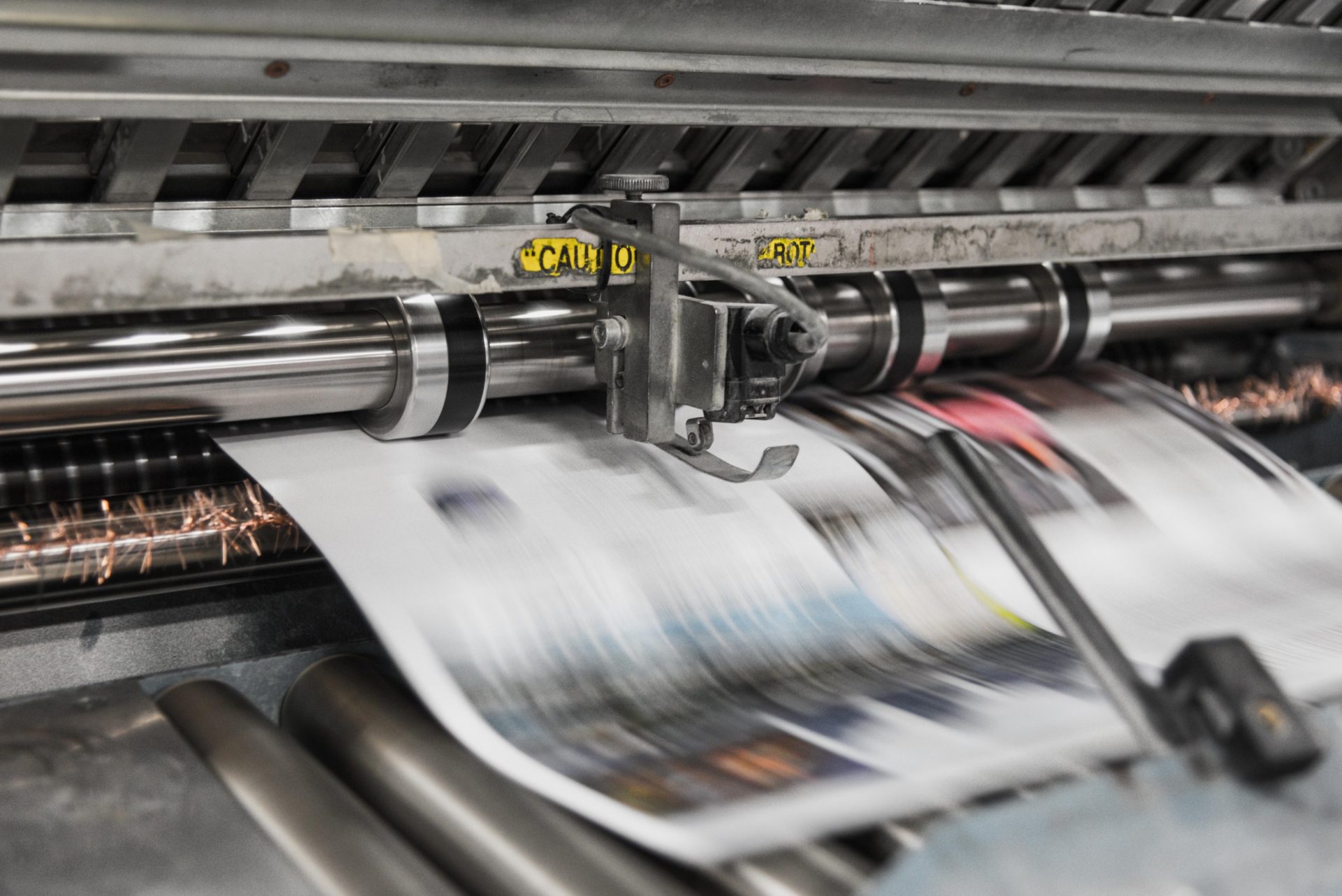
One bit of good news to come out of the partisan fight over Build Back Better is the inclusion of an important bit of nonpartisan policymaking – up to $1.67 billion to help local news organizations.
The provision provides a payroll tax credit to help local news organizations retain or hire journalists to cover their communities. The credit is not available to national news organizations such as CNN, Fox News, The New York Times, or NPR.
What many Americans don’t realize is that the local news system is in full collapse. There are now at least 1,800 communities without any local news at all and thousands more have barely any. In 2020 alone, a record 16,160 jobs were cut from across broadcast, digital, and print news. The vast majority of these layoffs came from local newsrooms.
There is ample evidence that communities with less local news have more corruption, waste, and pollution, as well as lower voter turnout, bond ratings, and civic involvement. The vacuums created by the loss of newspapers have been filled by social media and national cable news.
This tax credit is not a sop to cable news; it’s an antidote.
Although the credit is in a bill likely to be passed on a party-line vote, the original proposal to help local news came from the Local Journalism Sustainability Act, coauthored by Rep. Ann Kirkpatrick, a Democrat from Arizona, and Rep. Dan Newhouse, a Republican from Washington state. Some 20 Republicans co-sponsored the bill along with many Democrats.
Newhouse said it was particularly urgent to support local news in smaller and rural communities. “You’re not going to find too many large market sources of news reporting on your local city council or the high school basketball scores. Things like that might sound silly to a lot of people but truly are important to small communities. What’s happening in your communities, keeping people informed and in touch on so many different levels, is a very important part of an informed public.”
What’s more, Newhouse argues that strengthening local news can combat polarization. “If we continue to have strong local media outlets, that might help to ameliorate that polarization in the country. … Instead of just focusing on those hot button national and international issues, we spend equal amounts of time focusing on what’s happening in our own backyard.”
It also makes the government more likely to serve its citizens fairly and effectively. For instance, it would help the Spokane Spokesman-Review which just broke the story about how the Veterans Administration’s new computer system may lead to veterans getting inappropriate care. (I’m proud to say both journalists are from Report for America, the national service program I help run). And it will help the Brunswick News, whose persistent reporting about the killing of Ahmaud Arbery led to national attention and successful prosecution.
Indeed, it’s difficult for communities to solve their own problems without good information. That’s why a group of community foundations – which mostly fund issues like health care and hunger – recently came out in favor of this proposal.
“Without professionally developed, fact-based news and information, residents are not equipped to make decisions on important issues for themselves,” the community foundations wrote. “Democracy itself is endangered. As we know from our experience working on issues at the local level – public health, affordable housing, air and water quality, and education improvement among them – none of these can be addressed successfully without the record-keeping and accountability provided by professional journalists.”
Recently, some conservatives have attacked the provision as a sop to the liberal media. Their strategy is to imply that the tax credit is actually for national media. At a recent rally, Donald Trump pointed out to the national press corps covering him and said it was a “payoff to the fake news media.”
The bill is written to carefully exclude national organizations like CNN, MSNBC, Fox News, or NPR as well as the biggest (and most national) of the local papers – The New York Times and The Washington Post. In fact, most of the publications that have written about the inclusion of this provision in the Build Back Better act would not themselves benefit from it.
Two more legitimate concerns have been raised. First, some have suggested that it’s never a good idea for news media to take money from the government. In general, that’s a legitimate concern.
But this plan is carefully constructed to avoid burdens on editorial independence. There is no government agency parceling out grants based on awesome sounding (but subjective) investigative projects. The credits, as is usually the case with tax credits, are based on mechanical factors. Do you have a journalist covering a community? Do you disclose your ownership? Do you carry liability insurance? Are you owned by a political advocacy organization? (Those are excluded).
There will no doubt be points of confusion and controversy, as there was with the postal subsidy signed into law by President Washington. That bill gave low postal rates to newspapers. In fact, I can pretty much guarantee that some money will end up in the hands of local news organizations that you don’t like (just as it did in the Founding Fathers era). But it is that content-neutrality that also makes it less of a threat to editorial independence.
One of the biggest riddles facing lawmakers was whether benefits should go to newspapers owned by hedge funds, which have been dramatically cutting back on newsroom staff. The bill came up with a compromise, limiting how much any given corporation could get (1,500 slots per corporation). It’s worth noting too that they only get the benefit to subsidize the pay of local journalists. If they cut the size of their newsroom in half, they’ll also cut the size of their benefit in half. It creates some incentives for them to maintain or even strengthen local reporting.
This bill happened in part because local news organizations from around the country came together as part of something called the Rebuild Local News Coalition. In a way, it was a “coalition of the unwilling,” in the sense that no one was thrilled with the idea of government helping journalism. But the crisis has become so severe that we all felt we needed to see if there was some way to save democracy without undermining the First Amendment. Fortunately, the nonpartisan tax credit currently in the partisan Build Back Better Act is just such a provision. It could well help save local news.

Steven Waldman
Steven Waldman is president and co-founder of Report for America and chair of the Rebuild Local News Coalition.






